
From Golden Age screwball romcoms and globe-trotting Hong Kong martial arts extravaganzas to horror-tinged 2000s zombie spoofs, today we have stockpiled the most unabashedly fun and endlessly rewatchable titles the comedy genre has had to offer over the decades.
Though by no means an exhaustive list, there should be something for everyone in our rundown of the 10 most rewatchable comedy movies of all time. What makes a good comedy is highly subjective, so we deliberately tried to cast a wide net and squeeze in a few underseen gems along with the Best Picture winners and perennial favorites in order to spice things up and hopefully capture the entire breadth of the genre. As far as we’re concerned, every entry listed down below in chronological order is a stone-cold masterpiece worth your time that will crack you up, deliver the goods and only seems to get better with each extra viewing.
1. Duck Soup (1933)
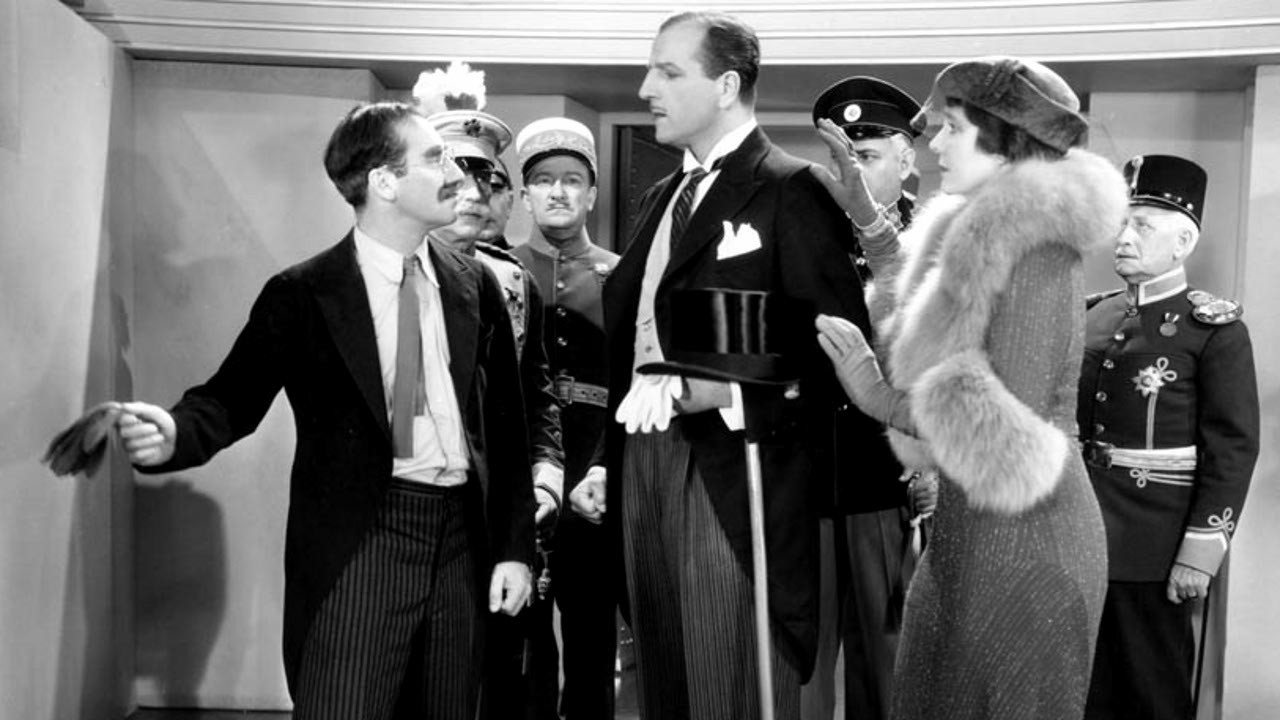
For sheer joke density and rewatchability value, you really can’t do better than this rip-roaring gem by the Marx Brothers. The brotherly troupe’s signature anarchic style, rapid-fire one-liners, and sardonic wit are on full display in this farcical takedown of rah-rah patriotism, dictatorship, and 1930s warmongering (the social commentary was so much on the nose that Benito Mussolini banned it from release in Italy). Potently flanked by Harpo, Chico, and Zeppo, Groucho is in his element chewing up the scenery and wreaking havoc all-around as Rufus T. Firefly, the newly-appointed dictator of Fredonia who foolishly leads the near-bankrupt nation to war against the neighboring Sylvania.
You honestly can’t go wrong with any of the heavy-hitters they churned out at Paramount, but other than perhaps “A Night at the Opera”, no Marx film gives you more bang for your buck than “Duck Soup”. Clocking in at an incredibly lean, swift 69 minutes that absolutely whip by, what this 1933 classic may lack in plot and harp/piano solos, it more than makes up for in the sheer number of hilarious routines and witty wordplay (we have a particular soft spot for the silent broken mirror sequence and the sidecar gag). Fun fact: Woody Allen holds “Duck Soup” in such high regard that his suicidal character in “Hannah and Her Sisters” cheers himself up by watching it repeatedly in cinemas.
2. His Girl Friday (1940)
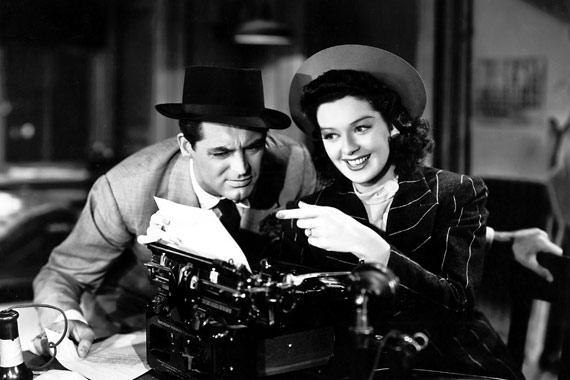
In this seminal screwball comedy by Howard Hawks, Cary Grant cracks and sizzles in the role of Walter Burns, a sharp-tongued New York newspaper editor determined to win back his star reporter and soon-to-be ex-wife (Rosalind Russell) before she resigns, ties the knot for a second time, and heads off to Albany to become a stay-at-home mom. Far and away one of the most infectiously charming Golden Age Hollywood productions and best movie remakes of all time, “His Girl Friday” jolts along at a breakneck pace with Grant and Russell trading barbs at full throttle at a whopping 250 word-per-minute pace while chasing the latest scoop: about the imminent execution of a meek bookkeeper convicted of murder.
The fact that it is nearly impossible to keep up with the onslaught of overlapping dialogue, rapid-fire back-and-forth banter, and witty puns on your first (or second, or even third) viewing is not a bug but a feature that only makes future re-watches even more essential and rewarding. Still the ultimate adaptation of the Broadway hit play (no offense to Billy Wilder), “His Girl Friday” was nothing short of a home-run for everyone involved, especially the Hawks-Grant axis (though to be fair, “Bringing Up Baby” came within spitting distance of making the cut). Watch this cinematic comfort blanket if you’re feeling down or looking for something that will lift your spirits.
3. Some Like it Hot (1959)
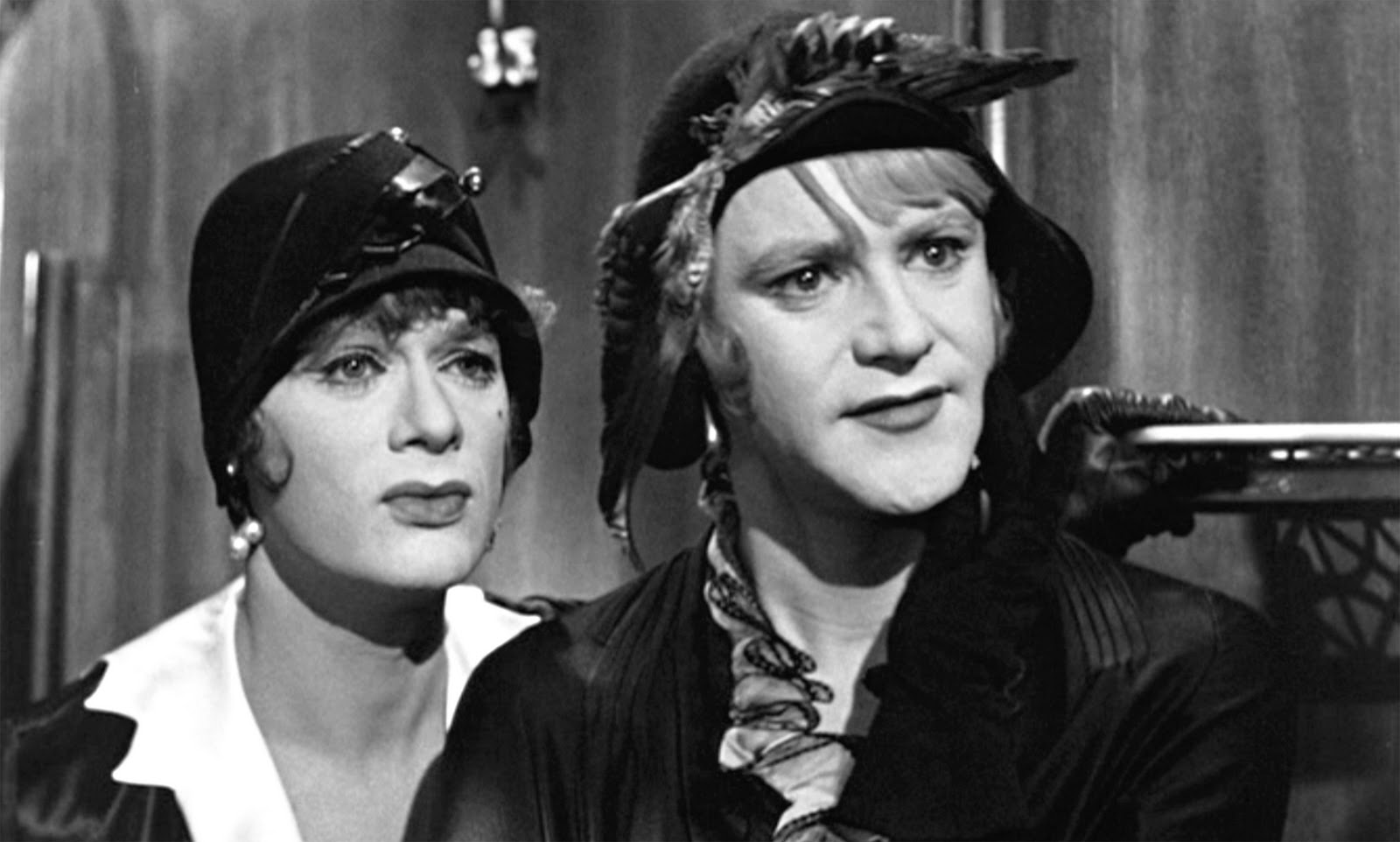
Nobody’s perfect, sure, but Billy Wilder’s deliriously madcap road trip extravaganza — toplined by the dynamic duo of Tony Curtis and Jack Lemmon as two cross-dressing musicians on the run who try to fend off the Chicago mob by infiltrating an all-female jazz band — comes pretty darn close.
Hardly a controversial pick, no other Hollywood director was able to get as much sheer mileage out of Marylin Monroe’s irresistible on-screen presence and underrated comedic chops as Wilder did in “Some Like it Hot”, a well-oiled and perfectly paced thrill ride bolstered by an ingenious setup and a near-perfect execution.
There’s not a dull moment as we watch Tony Curtis’ Joe lock eyes and try to hook up with Monroe’s happy-go-lucky Sugar Kane (who’s tired of always getting the fuzzy end of the lollipop) by posing as a debonair millionaire — all while clinging to his life with a bunch of trigger-happy gangsters hot on his trail. Oh, and we haven’t even mentioned that hilarious, iconic, and endlessly quotable final scene — which should’ve aged poorly but somehow remains as fresh and hilarious 65 years later.
4. Paper Moon (1973)
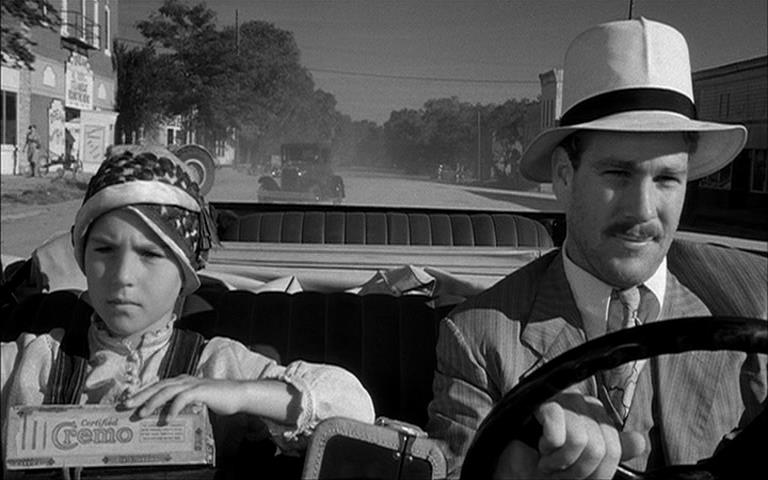
Okay, I know what you’re thinking: A black-and-white period piece about a two-bit con-artist struggling to make ends meet during the Great Depression? On paper, it doesn’t sound like the sort of uplifting stuff you’d expect to find in round-up lists of beloved crowdpleasers we make a point of revisiting every so often. Yet, one couldn’t ask for a finer tonic for the soul that will lift your spirits when you’re feeling blue than Peter Bogdanovich’s disarmingly sweet and tender novel adaptation “Paper Moon”.
Everything seems like smooth sailing for one Moses Pray (Ryan O’Neal), a down-on-his-luck swindler trying to earn a quick buck peddling Bibles to grieving widows through 1930s Kansas, that is, until a nine-year-old orphan girl (Tatum O’Neal) throws him for a loop and ends up joining in on his cunning scheme. Thus begins one of the most delightful road trip adventures and pitch-perfect on-screen pairings (played by father and daughter, no less) in cinema history. If you really want to treat yourself, try pairing this with 1972 “What’s Up, Doc?” for a perfect Bogdanovich-O’Neal screwball double bill. You’re welcome.
5. Blazing Saddles (1974)
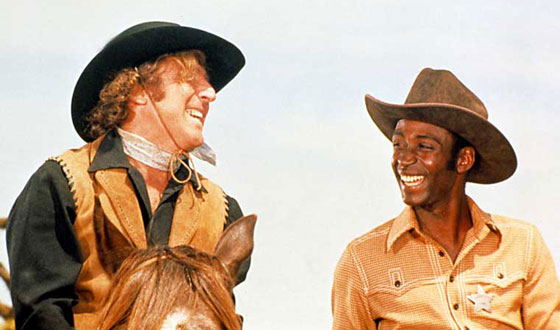
Conventional wisdom suggests that no major studio today would even entertain the idea of bankrolling this irreverent and unabashedly cheeky Western spoof — about a corrupt white governor appointing an African American ex-con as the town’s new sheriff — in our day and age. And granted, a modern perspective might consider certain aspects about Mel Brooks’ tonal highwire act perhaps too edgy (enough so that HBO recently dumped an intro disclaimer to the film). Be that as it may, one barely needs to be the sharpest tool in the shed to get the most out of “Blazing Saddles” while noticing the overt satire aimed at bigoted and macho Hollywood tropes.
Politically correct or not, watching Cleavon Little and Gene Wilder light up the scenery, perfectly play off one another and try their darndest to restore law and order in the frontier town of Rock Ridge is virtually guaranteed to lighten your mood and put a smile on your face any time of the week. The brilliant rapport between the two leads and the whip-smart screenplay are two obvious big selling points, yet the fourth wall-breaking antics still feel fresh and sharp even in an era oversaturated with meta, self-aware parodies that bend over backwards to wink at their audience (looking at you, Ryan Reynolds).